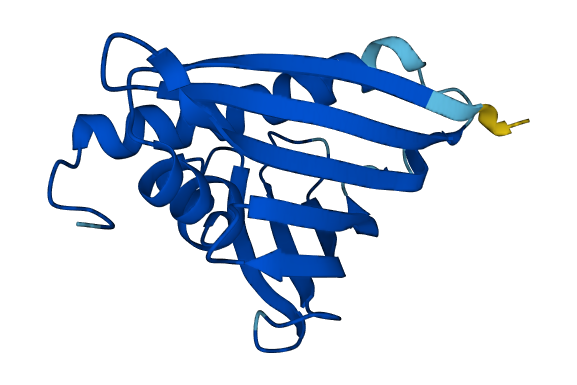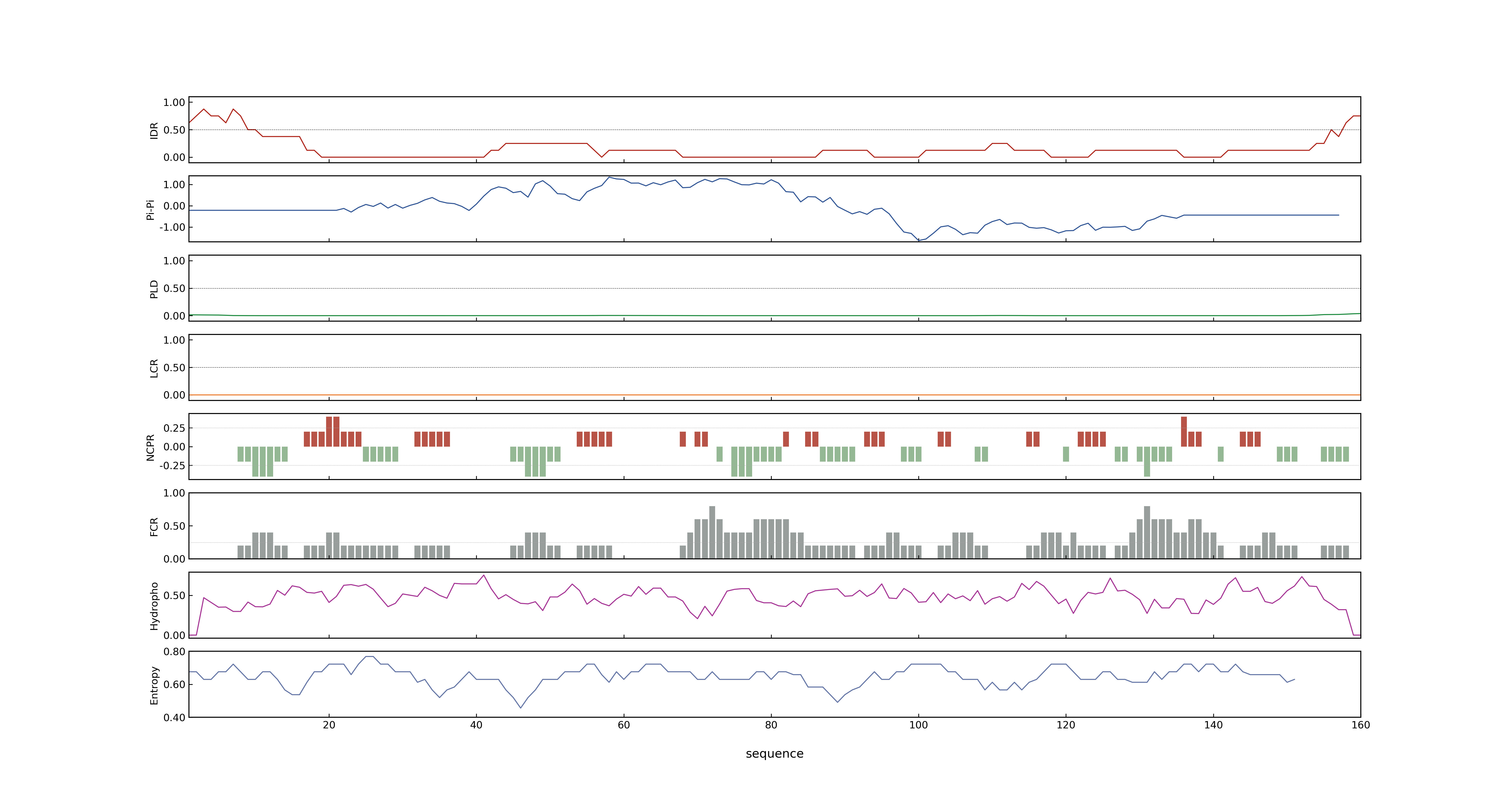- Information
- Symbol: JIOsPR10,OsPR10
- MSU: LOC_Os03g18850
- RAPdb: Os03g0300400
- PSP score
- LOC_Os03g18850.1: 0.0226
- PLAAC score
- LOC_Os03g18850.1: 0
- pLDDT score
- 94.69
- Protein Structure from AlphaFold and UniProt
- MolPhase score
- LOC_Os03g18850.1: 0.00093344
- MolPhase Result
- Publication
- Molecular cloning and characterization of a novel Jasmonate inducible pathogenesis-related class 10 protein gene, JIOsPR10, from rice Oryza sativa L. seedling leaves, 2001, Biochem Biophys Res Commun.
- The rice pathogen-related protein 10 JIOsPR10 is induced by abiotic and biotic stresses and exhibits ribonuclease activity, 2008, Plant Cell Rep.
- Overexpression of a Pathogenesis-Related Protein 10 Enhances Biotic and Abiotic Stress Tolerance in Rice., 2016, Plant Pathol J.
- Genbank accession number
- Key message
- ) gene, homologous to a sorghum pathogenesis-related class 10 protein gene, was cloned from a cDNA library prepared from 2-week-old jasmonic acid-treated rice seedling leaves, and named as JIOsPR10 (jasmonate inducible)
- Molecular cloning and characterization of a novel Jasmonate inducible pathogenesis-related class 10 protein gene, JIOsPR10, from rice (Oryza sativa L.) seedling leaves
- Western blots revealed that the JIOsPR10 protein was expressed in developmental tissues, including in flower and root
- Using immunohistochemical techniques, we determined that expression of JIOsPR10 was localized to the palea of flower, in the exodermis, and inner part of the endodermis of the root
- We previously reported that rice blast fungus or jasmonic acid induced the expression of rice pathogenesis-related class 10 (JIOsPR10) proteins (Kim et al
- Further expression analysis revealed that the signaling components of defense/stress pathways, jasmonate, salicylate, and H(2)O(2) significantly up-regulated the JIOsPR10 mRNA over the cut control, whereas two other stress regulators, ethylene and abscisic acid, failed to induce its expression
- Finally, the blast pathogen (Magnaporthe grisea) also specifically elicited the accumulation of JIOsPR10 mRNA in leaves
- Taken together, we hypothesize that the JIOsPR10 protein possesses RNase activity that is sensitive to DTT, suggesting the importance of the disulfide bonding between cysteine residues and that it might play a role in constitutive self-defense mechanisms in plants against biotic and abiotic stresses
- The rice pathogen-related protein 10 (JIOsPR10) is induced by abiotic and biotic stresses and exhibits ribonuclease activity
- Induction of the JIOsPR10 gene expression by signaling molecules, PP inhibitors and pathogen attack, strongly indicate a role for this novel gene in rice self-defense/stress response(s)
- Constitutive over-expression JIOsPR10 in rice promoted shoot and root development in transgenic plants, however, their productivity was unaltered
- A comparative proteomic profiling of wild type and transgenic plants showed that overexpression of JIOsPR10 led to the differential modulation of several proteins mainly related with oxidative stresses, carbohydrate metabolism, and plant defense
- Semi-quantitative RT-PCR analysis showed up-regulation of JIOsPR10 under salt and drought stress conditions
- Taken together, our findings suggest that JIOsPR10 plays important roles in biotic and abiotic stresses tolerance probably by activation of stress related proteins
- Connection
Prev Next

